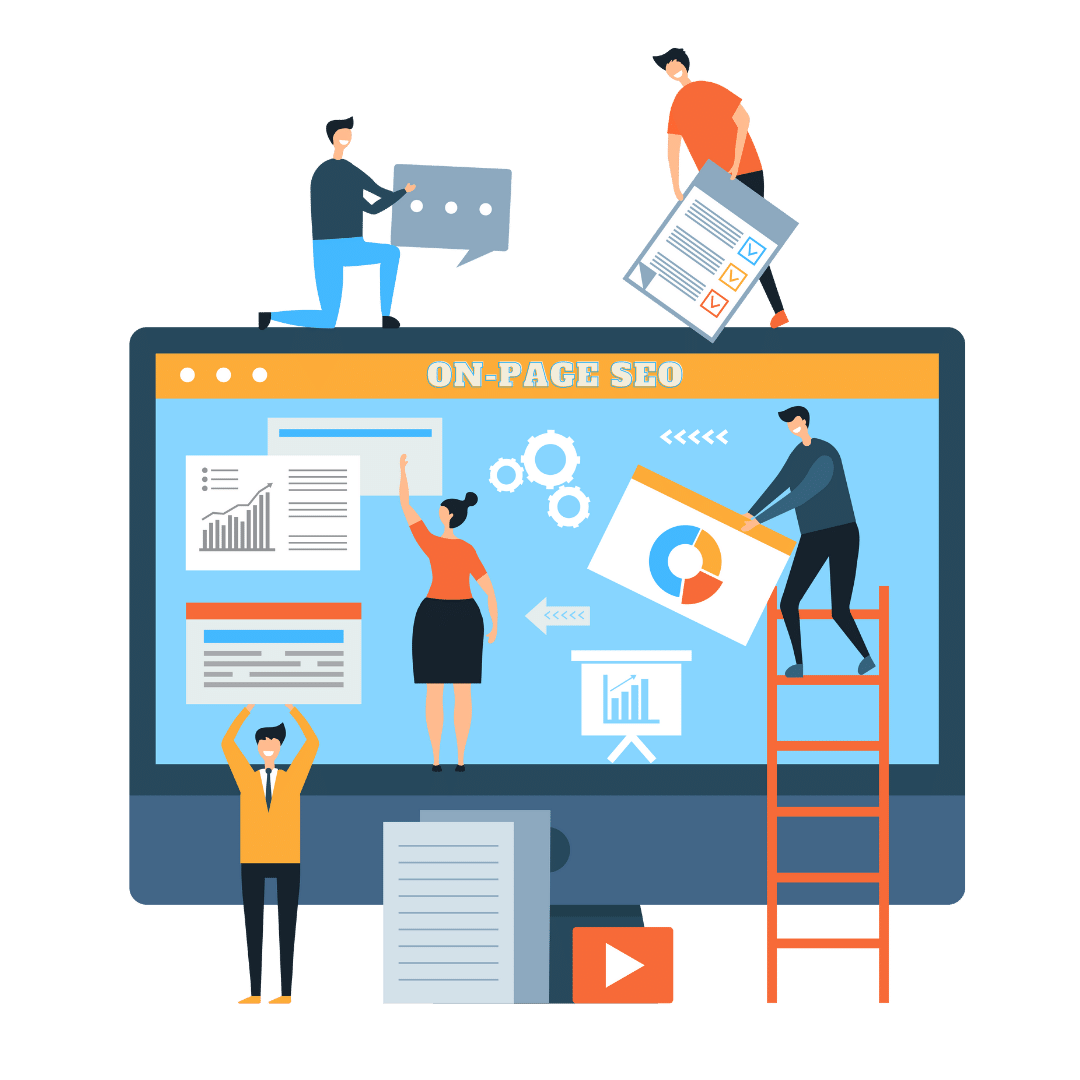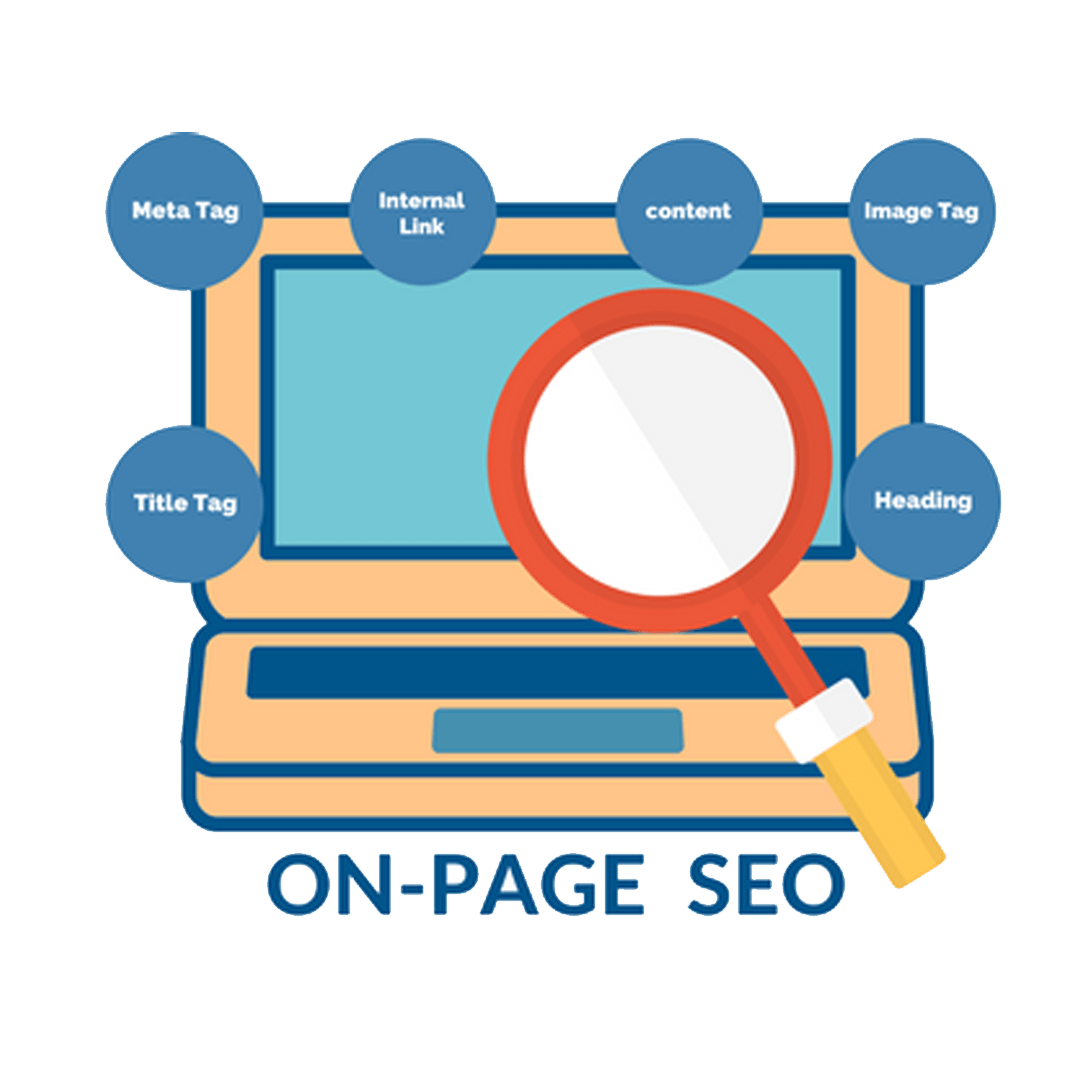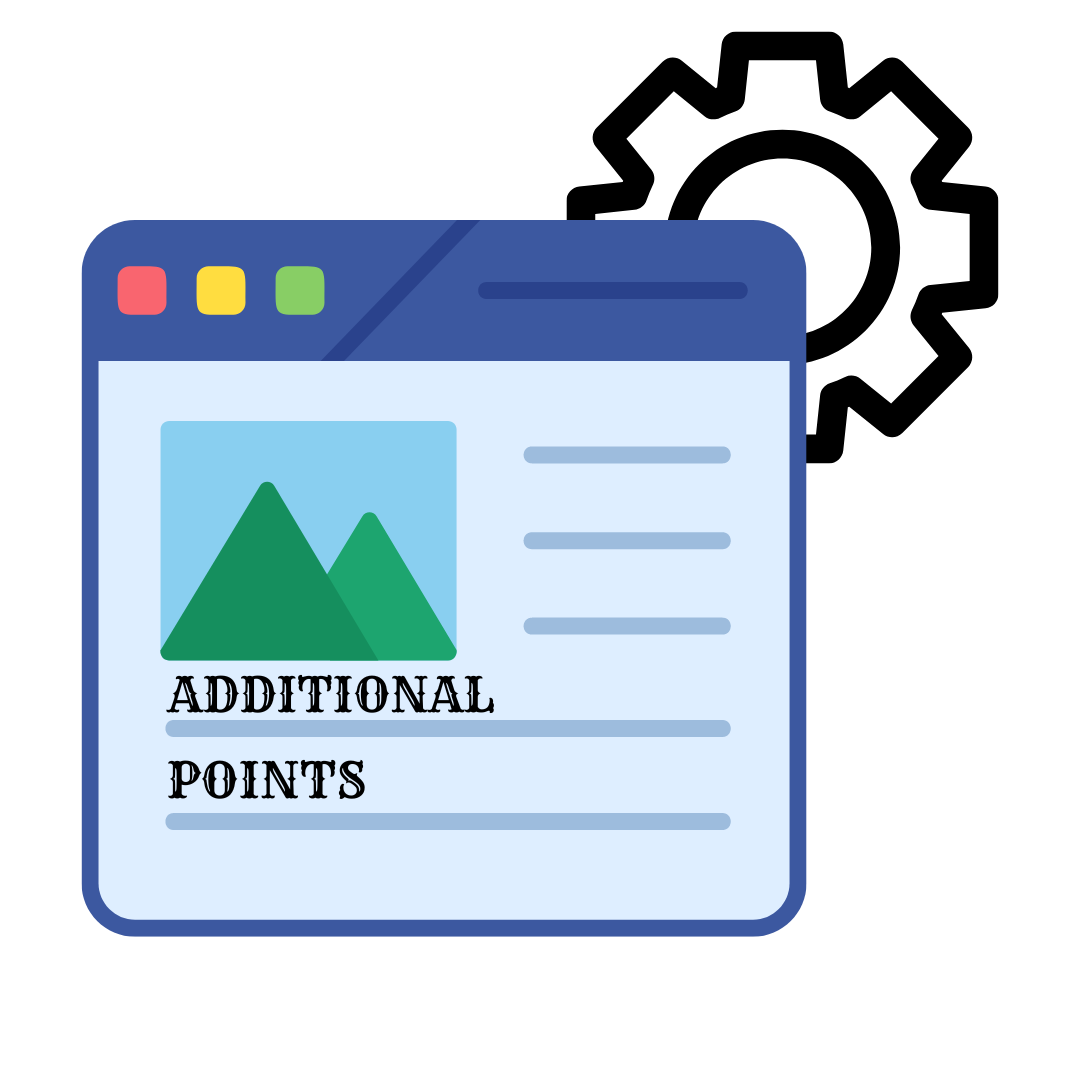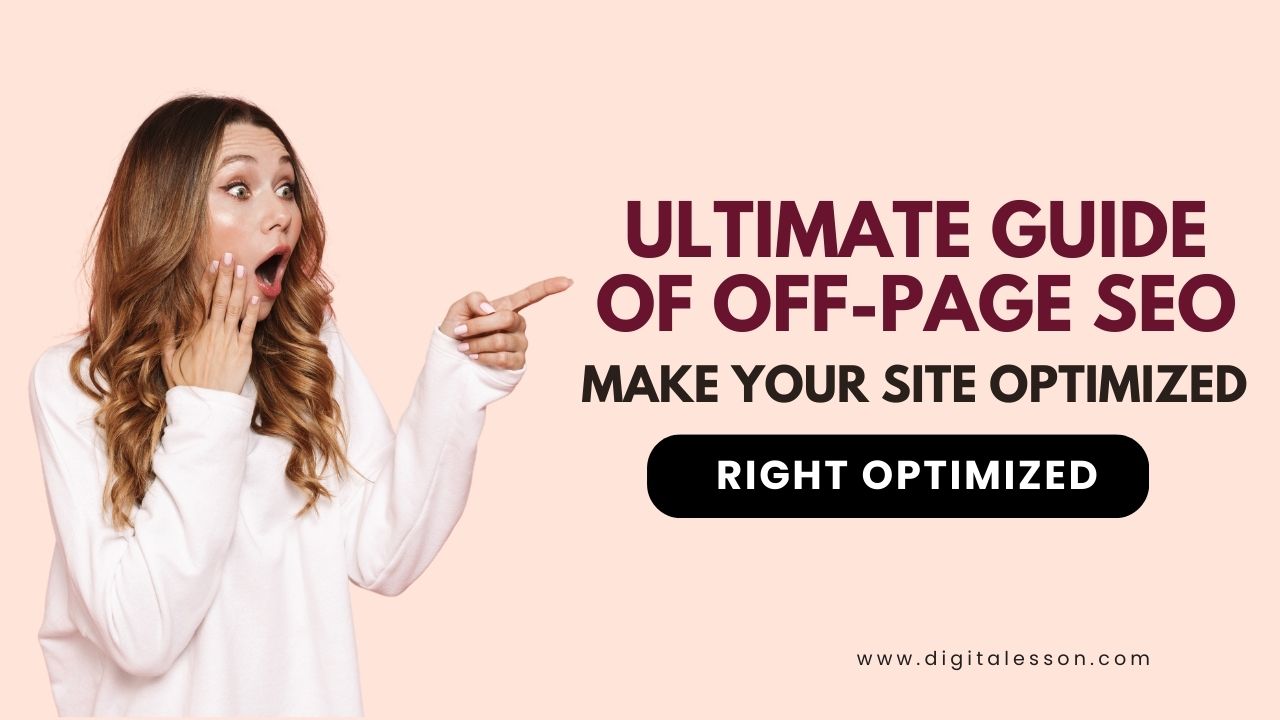Table of Contents

On-Page SEO Refers To The Process Of Optimizing Individual Web Pages To Improve Their Ranking In Search Engines And Attract More Relevant Traffic. This Type Of SEO Focuses On Optimizing Various On-Page Elements Of A Website Such As Content, HTML Source Code, And Images To Make Them More Search Engine Friendly. The Main Goal Of On-Page SEO Is To Help Search Engines Understand The Content Of A Page And Determine Its Relevance To A User’s Search Query. This Is Achieved By Optimizing Several On-Page Elements Such As:
On-Page Optimization

1. Title Tags : The Title Tag is One Of The Most Important On-Page Elements, As It Appears In The Search Engine Results Pages (SERPs) And Is Often The First Thing Users See When Deciding Whether To Click On Your Website. Title Tags Should Be Written With The Primary Keyword At The Beginning And Should Be No Longer Than 60 Characters To Avoid Truncation In The SERPs
2. Meta Descriptions : The Meta Description Is A Brief Summary Of The Content On The Webpage And Appears Below The Title Tag In The SERPs. Although Meta Descriptions Do Not Directly Impact Rankings, They Can Influence Click-Through Rates (CTR) From The SERPs. Meta Descriptions Should Be Written To Be Informative And Compelling, While Also Including The Primary Keyword.
3. Headings : Headings Are HTML Tags (H1-H6) Used To Structure The Content On A Webpage. The H1 Tag Is The Main Heading Of The Page And Should Include The Primary Keyword. Subheadings (H2-H6) Should Also Be Used To Organize Content And Make It Easier To Read. Additionally, Using Relevant Keywords In Headings Can Help Search Engines Better Understand The Content On The Page.
4. Content : The Content On A Webpage Should Be High-Quality And Provide Value To Users. It’s Important To Include The Primary Keyword In The Content, But Avoid Keyword Stuffing, Which Can Negatively Impact Rankings. Aim To Create Content That Is Engaging, Informative, And Comprehensive, As This Will Encourage Users To Spend More Time On Your Website And Reduce Bounce Rates.
5. Images : Images Can Be Optimized For Search Engines By Using Relevant Alt Tags And Descriptive File Names. Alt Tags Should Be Written To Accurately Describe The Content Of The Image And Include Relevant Keywords Where Appropriate. Additionally, Images Should Be Compressed To Reduce File Size And Improve Page Load Times.
6. URL Structure : The Structure Of A Webpage’s URL Can Also Impact Its Search Engine Rankings. URLs Should Be Descriptive And Include Relevant Keywords, While Avoiding Unnecessary Characters Or Symbols. A Clear And Concise URL Structure Can Help Both Search Engines And Users Better Understand The Content Of The Page.
7. Schema Markup : Schema Markup is A Type Of Microdata That Can Be Added To A Webpage’s HTML Code To Provide Additional Information To Search Engines About The Content On The Page. This Can Include Information Such As Business Hours, Ratings, And Reviews. Adding Schema Markup Can Help Search Engines Better Understand The Content Of The Page And Improve Its Visibility In The SERPs.
Additional Points

1. Content Quality : The Quality Of Your Content Is A Crucial Factor In On-Page SEO. Your Content Should Be Informative, Engaging, And Provide Value To Your Target Audience. It’s Also Important To Ensure That Your Content Is Original And Not Duplicated From Other Websites.
2. Page Speed : Page Speed Is An Important Factor In Both User Experience And Search Engine Rankings. Ensure That Your Website Loads Quickly By Optimizing Images, Minifying Code, And Using A Content Delivery Network (CDN) If Necessary.
3. Mobile Optimization : With More And More Users Accessing The Internet Via Mobile Devices, It’s Crucial To Ensure That Your Website Is Mobile-Friendly. This Means Optimizing For Smaller Screens, Ensuring That The Website Loads Quickly On Mobile, And Using Responsive Design.
4. Internal Linking : Internal Linking Is An On-Page SEO Strategy That Involves Linking To Other Pages On Your Website From Within Your Content. This Helps Search Engines Understand The Structure Of Your Website And Improves The User Experience By Providing Additional Resources.
5. Social Sharing : While Social Sharing Doesn’t Directly Impact Search Engine Rankings, It Can Indirectly Improve Them By Driving More Traffic To Your Website. Make It Easy For Users To Share Your Content By Including Social Sharing Buttons On Your Website.
Overall, Effective On-Page SEO Requires A Holistic Approach That Takes Into Account All Of The Different Elements That Impact Search Engine Rankings. By Optimizing These Elements And Creating High-Quality, Valuable Content, You Can Improve Your Website’s Visibility In The Search Results And Attract More Targeted Traffic To Your Website.



